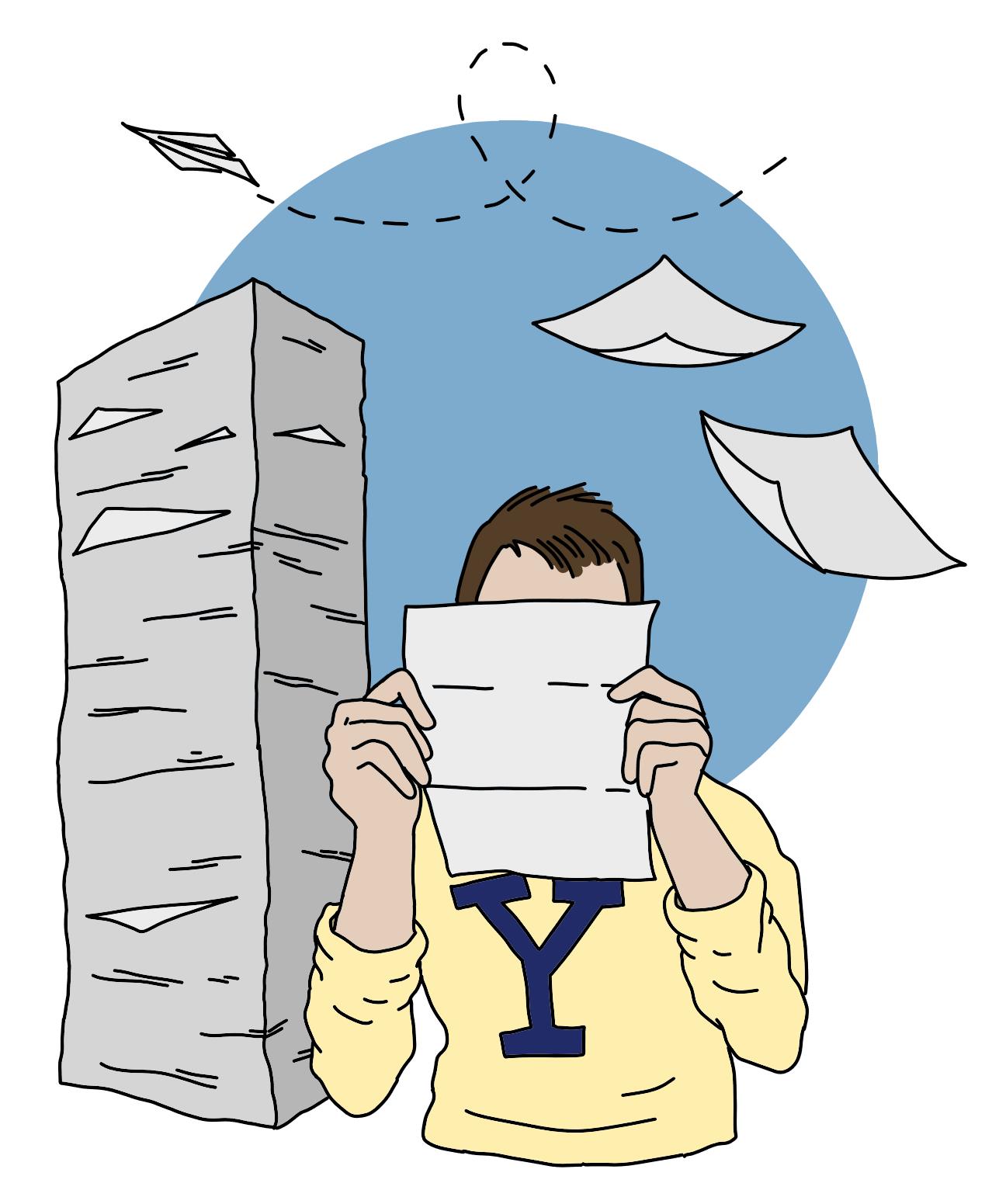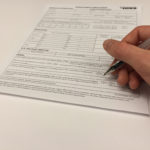‘A top of the roller coaster moment’: How Yale admissions officers read nearly 47,000 applications in months

Anasthasia Shilov, Illustrations Editor
To evaluate this year’s unprecedented number of applications, the Office of Undergraduate Admissions brought in new hires and increased committee meetings. Yale’s admissions officers hunkered down to read applications for over three months straight.
On April 6, the Office of Undergraduate Admissions announced that Yale College had accepted 4.62 percent of applicants out of a pool of 46,905 applications, a 33 percent increase from the previous year’s pool. To read through all of these applications, Yale hired two new admissions officers — despite a University-wide hiring freeze — and increased the number of committees meeting each day from two to three. Admissions officers worked entirely remotely and described an “all-hands-on-deck situation” that required increasing hours and reading expectations.
“Despite the increase in volume, we still read all applications carefully and contextually, one at a time,” Dean of Undergraduate Admissions and Financial Aid Jeremiah Quinlan wrote in an email to the News. “Although the highly-selective nature of our process means it is always difficult to deny admission to many thousands of very well-qualified candidates, the sensible adaptations we made to our process this year make me confident that our decisions were just as thoughtful and well-informed as in any previous admissions cycle. The entire admissions team worked hard to ensure that nothing was sacrificed as we evaluated a record number of applications.”
The News spoke to Associate Director of Admissions John Yi ’13, who reads applications from East and Southeast Asia as well as a part of West Los Angeles, and Senior Assistant Director of Admissions Corinne Smith, who reads applications from parts of 10 states — among the largest domestic territories in the admissions office. Both said that they expected some increase in applications after Yale announced that it would be test optional for the 2020-2021 admissions cycle and after Yale’s early application pool contained a record number of applications.
But both said they were surprised at the extent that the application pool increased. Smith said she expected a 10 or 20 percent increase, but was “blown away” by how many applications ended up coming in.
“I think we all knew there was going to be an increase, but 33 percent is a lot,” Yi said. “Then we saw how big the increase was and it was just kind of like a top of the roller coaster moment where we were all like ‘Oh, my gosh.’”
According to Yi, who co-chairs the admissions office’s hiring and training team, the office began discussing hiring additional officers in mid-December, as they prepared for the regular admissions cycle.
Although Yale has a hiring freeze in place for faculty and staff through June 30, the administration gave the Admissions office special permission to hire two new officers. The new officers were onboarded in early January and read applications for the duration of the regular application cycle. They are not planning to remain on staff following this admissions cycle, and the office does not currently have finalized plans for the specific positions that they filled, according to Mark Dunn, Director of Outreach & Communications.
In addition to the expanded staff capacity, the admissions office sped up the application evaluation process by increasing the number of committees that met each day to evaluate applications. After admissions officers are done reading through applications, they present them in committees composed of other officers, Yale College faculty, deans and administrators. In a typical year, two committees meet at a time due to space constraints in the admissions building. This year, all deliberations were virtual, so three committees were able to meet at a time. Smith said that despite missing the snacks and the lively nature of seeing everyone in person, the virtual deliberations proved to be very effective.
In addition to these changes, the Ivy League as a whole decided in January to push back the admissions timeline by a week to give all schools more time to read applications. All Ivy League institutions released their decisions on April 6, compared to late March in previous years.
“If you asked us Jan. 5 how tight the timeline would be at the end, we would have been very intimidated,” Yi said. “But it happened. It really did.”
Smith described a “team effort” that allowed the admissions officers to collectively read all the applications by the deadline. She added that while in past years each officer might have had a target number they wanted to reach each day or week and then would stop after they had reached that number, this year, officers were constantly pitching in to help others after they had finished their own. Former admissions officers who had worked for Yale in years past also volunteered to step in and read applications when they could, according to Smith.
Both Yi and Smith said they had to work longer hours this year to read the thousands of applications in each of their regions. But they both agreed that, despite “requiring lots of coffee,” the reading did not take a much more drastic toll on their daily lives than it does in a typical year.
“There was a lot on our plates; that’s absolutely clear,” Smith said. “But it was never this idea of ‘sacrifice your mental and physical health for this process.’ It really was a team effort, and I think that that’s how we ultimately got it done.”
Yale is currently holding a virtual version of Bulldog Days for admitted students, who have until May 3 to reply to Yale’s offer of admission.
Amelia Davidson | amelia.davidson@yale.edu
Correction, April 19: A previous version of this article incorrectly stated that the two new hires will remain on board following this application cycle. They are not planning to remain on staff, and the story has been updated.










